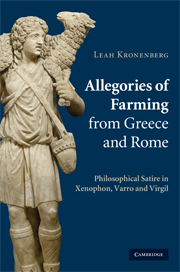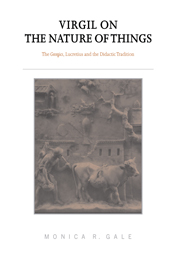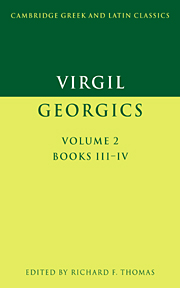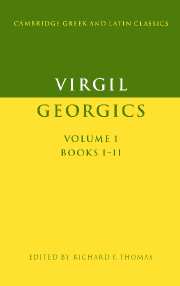Allegories of Farming from Greece and Rome
In this book Professor Kronenberg shows that Xenophon's Oeconomicus, Varro's De Re Rustica and Virgil's Georgics are not simply works on farming but belong to a tradition of philosophical satire which uses allegory and irony to question the meaning of morality. These works metaphorically connect farming and its related arts to political life; but instead of presenting farming in its traditional guise as a positive symbol, they use it to model the deficiencies of the active life, which in turn is juxtaposed to a preferred contemplative way of life. Although these three texts are not usually treated together, this book convincingly connects them with an original and provocative interpretation of their allegorical use of farming. It also fills an important gap in our understanding of the literary influences on the Georgics by showing that it is shaped not just by its poetic predecessors but by philosophical dialogue.
- Re-evaluates the works of three major classical authors in an original and provocative way
- Sheds new light on the Georgics by examining little-known prose influences on the poem
- Presents a radical new interpretation of Varro, a crucial figure in Republican Rome
Product details
May 2009Hardback
9780521517263
236 pages
235 × 159 × 29 mm
0.52kg
Available
Table of Contents
- Introduction
- Part I. Xenophon's Oeconomicus:
- 1. Socrates and Critobulus (Oec. 1-6)
- 2. A philosopher and a gentleman (Oec. 7-21)
- Part II. Varro's De Re Rustica:
- 3. The art of farming
- 4. The morality of farming
- 5. The politics of farming
- Part III. Virgil's Georgics:
- 6. Virgil's satire on farming
- 7. Farmers and poets
- Epilogue.





